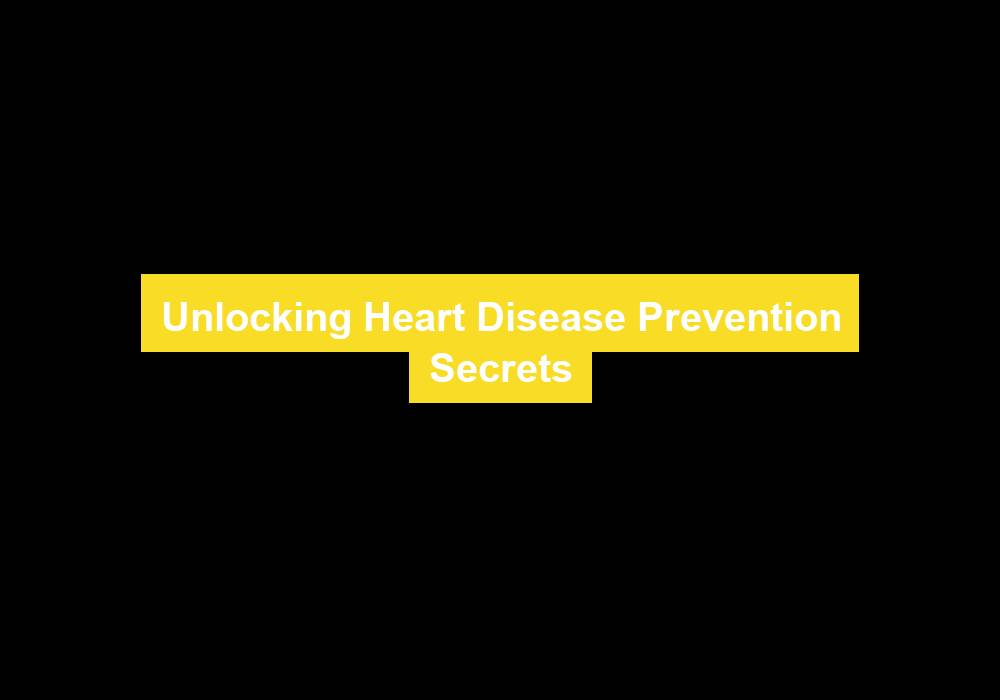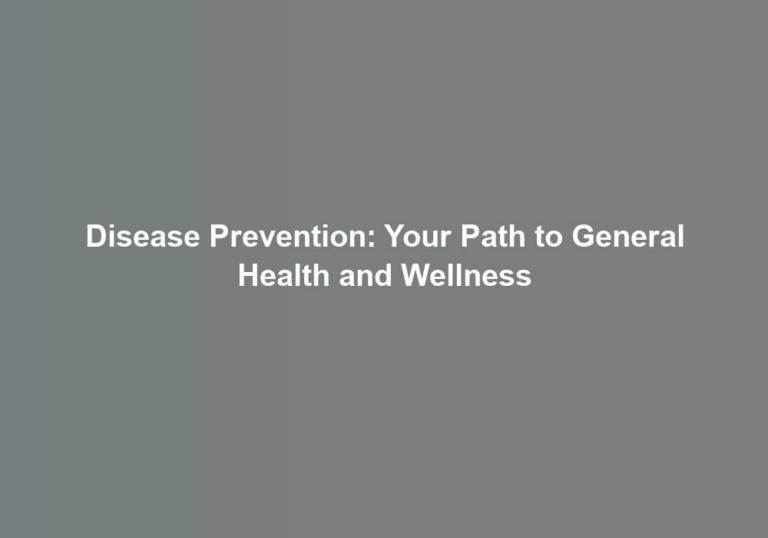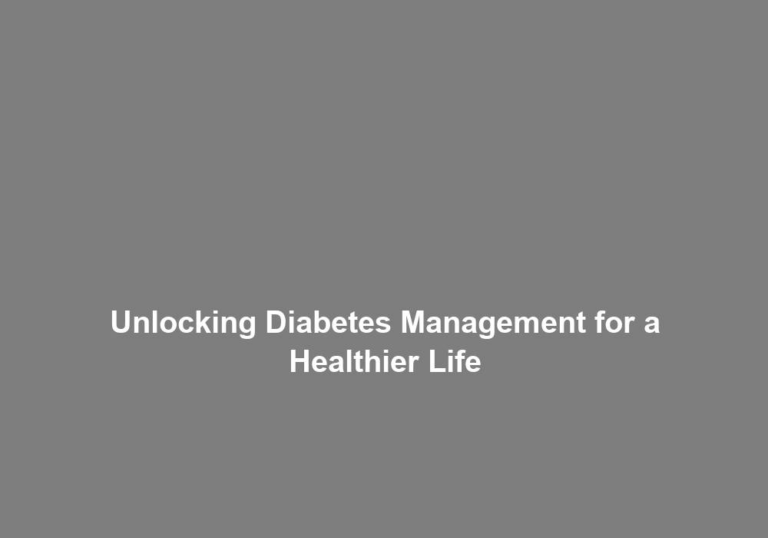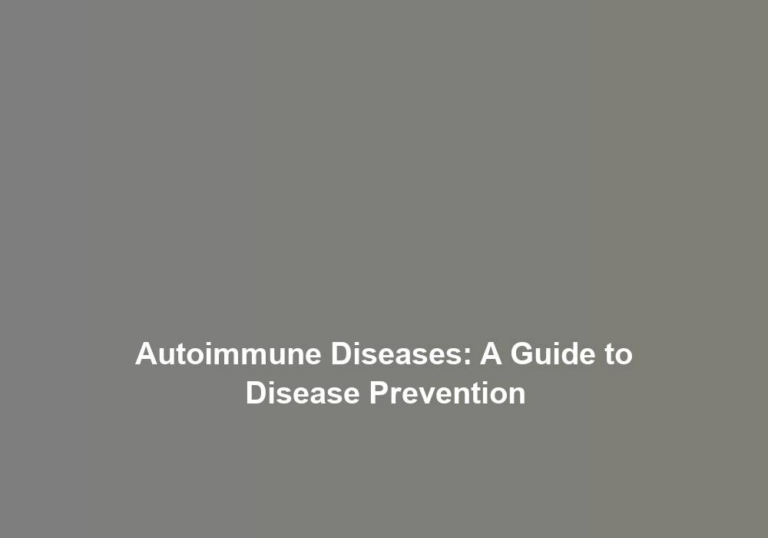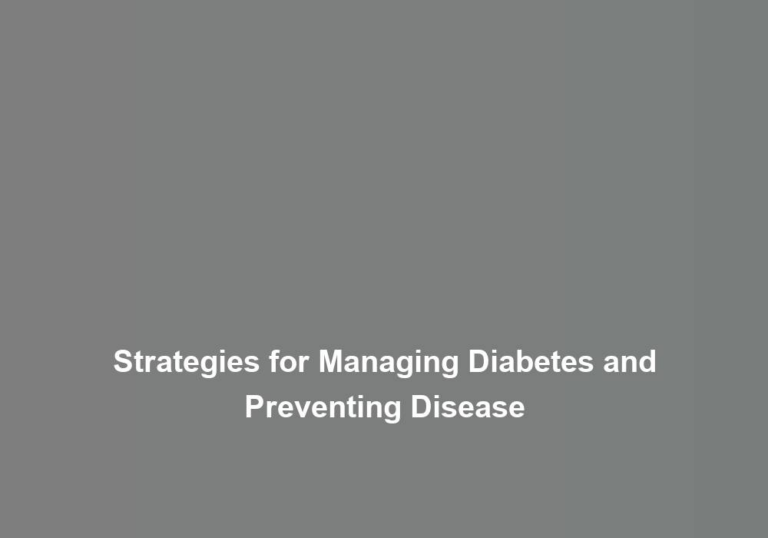Unlocking Heart Disease Prevention Secrets
Unlocking the secrets to preventing heart disease is like having a key that opens the door to a healthier life. You may think you know all there is to know about heart health, but there are hidden factors and strategies that could make a significant difference in your well-being. By exploring the latest research and understanding the complex interplay of lifestyle choices, genetics, and environmental influences, you can gain invaluable insights into how to protect your heart from disease. Understanding these secrets could be the key to improving your overall health and longevity.
Risk Factors for Heart Disease
To prevent heart disease, it is essential to understand the risk factors that can contribute to its development. Weight management plays a crucial role in reducing the risk of heart disease. Being overweight or obese can lead to high cholesterol levels and an increased likelihood of developing conditions such as hypertension and diabetes, which are significant risk factors for heart disease. It is important to maintain a healthy weight through regular physical activity and a balanced diet to mitigate these risks.
Monitoring cholesterol levels is another vital aspect of heart disease prevention. High levels of LDL cholesterol, often referred to as G??badG?? cholesterol, can lead to the buildup of plaque in the arteries, increasing the risk of heart disease. Conversely, maintaining high levels of HDL cholesterol, known as G??goodG?? cholesterol, can help protect against heart disease. Regular screenings and dietary adjustments can aid in managing cholesterol levels and reducing the risk of heart disease.
Additionally, keeping an eye on blood pressure is essential for preventing heart disease. Hypertension can strain the heart and damage blood vessels, increasing the risk of heart attack, stroke, and other cardiovascular complications. Managing blood pressure through a healthy lifestyle, including a low-sodium diet and regular exercise, is crucial for reducing the risk of heart disease.
Furthermore, individuals with diabetes face an elevated risk of developing heart disease. Maintaining a healthy weight, engaging in regular physical activity, and adhering to a balanced diet are essential for managing diabetes and reducing the associated risk of heart disease. By addressing these risk factors through lifestyle modifications and regular medical check-ups, individuals can significantly contribute to the prevention of heart disease.
Importance of Regular Exercise
You need to understand the vital role that regular exercise plays in maintaining heart health. Research consistently shows that physical activity can significantly reduce the risk of developing heart disease. Engaging in regular exercise has been proven to lower blood pressure, improve cholesterol levels, and enhance overall cardiovascular function.
Exercise and Heart Health
Regular exercise plays a crucial role in maintaining heart health and reducing the risk of heart disease. It is essential for improving cardiovascular fitness and overall well-being. Consider the following points to understand the importance of regular exercise:
-
Improved Cardiovascular Fitness:
-
Regular aerobic exercise, such as brisk walking, swimming, or cycling, strengthens the heart and improves its ability to pump blood efficiently.
-
It also enhances the bodyG??s capacity to utilize oxygen, which is vital for overall cardiovascular health.
-
Reduced Risk of Heart Disease:
-
Engaging in regular exercise helps lower blood pressure, improve cholesterol levels, and maintain a healthy weight, all of which are crucial factors in reducing the risk of heart disease.
-
Enhanced Longevity and Quality of Life:
-
Research indicates that individuals who engage in regular physical activity tend to live longer and have a better quality of life, including a reduced risk of developing heart-related conditions.
Benefits of Physical Activity
After discussing the role of exercise in maintaining heart health and reducing the risk of heart disease, it is essential to examine the scientific evidence highlighting the myriad benefits of physical activity, particularly the importance of regular exercise in promoting cardiovascular wellness. Cardiovascular fitness is a key aspect of overall health, and regular physical activity plays a crucial role in enhancing it. Endurance training, such as aerobic exercises, strengthens the heart and improves its efficiency in pumping blood, leading to reduced strain on the cardiovascular system. Engaging in regular exercise also helps in lowering blood pressure, improving cholesterol levels, and reducing the risk of developing blood clots. Furthermore, physical activity promotes weight management and helps in maintaining healthy blood sugar levels, all of which are vital for cardiovascular health.
Role of Diet in Heart Health
Consuming a balanced, nutrient-rich diet plays a crucial role in maintaining heart health and reducing the risk of developing heart disease. Dietary modifications and nutrition education are essential components of heart disease prevention. Consider the following key points:
-
Importance of Nutrient-Dense Foods: Emphasize the consumption of nutrient-dense foods such as fruits, vegetables, whole grains, lean proteins, and healthy fats. These foods provide essential vitamins, minerals, and antioxidants that support heart health and overall well-being.
-
Nutrition Education: Engage in ongoing nutrition education to understand the impact of different food groups on heart health. By learning about the benefits of specific nutrients and the role they play in preventing heart disease, you can make informed dietary choices.
-
Limiting Sodium and Processed Foods: Reduce the intake of sodium and processed foods, which are linked to an increased risk of high blood pressure and heart disease. Incorporating whole, unprocessed foods and paying attention to food labels can help in managing sodium intake.
-
Dietary Modifications: Make conscious efforts to modify your diet by reducing the consumption of processed and high-sodium foods. Instead, focus on preparing meals using fresh, whole ingredients to support heart health.
-
Balancing Macronutrients: Strive to achieve a balanced intake of carbohydrates, proteins, and fats. Opt for healthy sources of fats such as avocados, nuts, and olive oil, and choose lean protein options to support heart health.
-
Nutrient-Rich Diet: Tailor your diet to include a variety of nutrient-rich foods to ensure a well-rounded intake of essential macronutrients that are vital for heart health.
Stress Management Techniques
To manage stress effectively, incorporate mindfulness practices into your daily routine, as research suggests that mindfulness can positively impact cardiovascular health. Mindfulness meditation involves focusing your attention on the present moment, which can help reduce stress and anxiety, leading to improved heart health. Additionally, relaxation techniques such as deep breathing, progressive muscle relaxation, and guided imagery can aid in stress reduction, thereby benefiting your heart.
Consider integrating the following stress management techniques into your routine:
| Mindfulness Meditation | Relaxation Techniques |
|---|---|
| Mindfulness meditation involves paying attention to the present moment without judgment. This practice can help lower blood pressure and reduce the risk of heart disease. | Deep breathing exercises can help calm the mind and body, reducing stress and promoting relaxation. Practice deep breathing for a few minutes each day. |
| Engage in guided meditation sessions, focusing on breathing and body awareness. Research shows that regular practice may improve your heart rate variability and overall heart health. | Progressive muscle relaxation involves tensing and then relaxing different muscle groups in the body. This technique can help release physical tension and alleviate stress. |
| Participate in mindfulness-based stress reduction programs, which have been linked to lower levels of cortisol, a stress hormone that can negatively impact the heart. | Guided imagery involves visualizing peaceful, calming scenes to promote relaxation and reduce stress levels. Regular practice may contribute to better heart health. |
Incorporating these stress management techniques into your daily life can have a positive impact on your cardiovascular health. By prioritizing stress reduction, you are taking an active step towards preventing heart disease and promoting overall well-being.
Impact of Smoking and Alcohol
In considering the impact of smoking and alcohol on cardiovascular health, it becomes imperative to recognize the interconnectedness of lifestyle factors and their potential effects on heart disease prevention. The choices you make regarding smoking cessation and alcohol moderation can significantly impact your heart health. HereG??s what you need to know:
-
Smoking Cessation:
-
Smoking is a major risk factor for heart disease, as it damages the lining of the arteries, leading to a buildup of fatty material which narrows the arteries, reducing blood flow to the heart. By quitting smoking, you can drastically reduce your risk of heart disease.
-
Research has shown that within just a year of quitting, your risk of heart disease can be cut in half, and within 15 years, your risk becomes nearly the same as that of a non-smoker.
-
Joining smoking cessation programs, using nicotine replacement therapies, and seeking support from friends and family are effective strategies to help you quit smoking.
-
Alcohol Moderation:
-
While moderate alcohol consumption may have some protective effects on the heart, excessive drinking can lead to high blood pressure, heart failure, and an increased risk of stroke and other heart-related issues.
-
Moderation is key – for men, the recommended limit is up to two drinks per day, and for women, it is up to one drink per day.
-
ItG??s important to be mindful of your alcohol intake, and if you choose to drink, doing so in moderation can help reduce your risk of heart disease.
Genetic Predisposition and Prevention
If you have a family history of heart disease or have been identified as having a genetic predisposition to cardiovascular conditions, it is crucial to understand the impact of genetics on heart disease prevention and the proactive measures you can take. Genetic testing can provide valuable insights into your predisposition to heart disease, allowing for personalized prevention strategies. Lifestyle modifications play a pivotal role in managing genetic predisposition to heart disease. By making informed choices and adopting healthy habits, you can significantly reduce the impact of genetic factors on your heart health.
| Genetic Predisposition and Prevention | |
|---|---|
| Genetic Testing | Identify specific genetic markers associated with heart disease. |
| Lifestyle Modifications | Adopt a heart-healthy diet and engage in regular physical activity. |
| Manage stress levels and prioritize adequate sleep. | |
| Avoid tobacco and limit alcohol consumption. | |
| Regularly monitor and manage other risk factors, such as high blood pressure and cholesterol levels. |
Understanding your genetic predisposition to heart disease empowers you to take proactive steps in preventing its onset. Genetic testing can identify specific genetic markers associated with heart disease, enabling early intervention and targeted preventive measures. Moreover, embracing lifestyle modifications, including a heart-healthy diet, regular physical activity, stress management, and avoidance of tobacco and excessive alcohol consumption, can mitigate the impact of genetic predisposition. By integrating genetic insights with proactive lifestyle choices, you can chart a path towards a heart-healthy future, transcending genetic predisposition.
Conclusion
So, as you can see, by maintaining a healthy lifestyle, including regular exercise, a balanced diet, and stress management, you can significantly reduce your risk of heart disease. ItG??s no coincidence that those who prioritize their heart health often lead longer, more fulfilling lives. By making small, consistent changes to your daily habits, you can unlock the secrets to preventing heart disease and enjoy a healthier, happier future.

